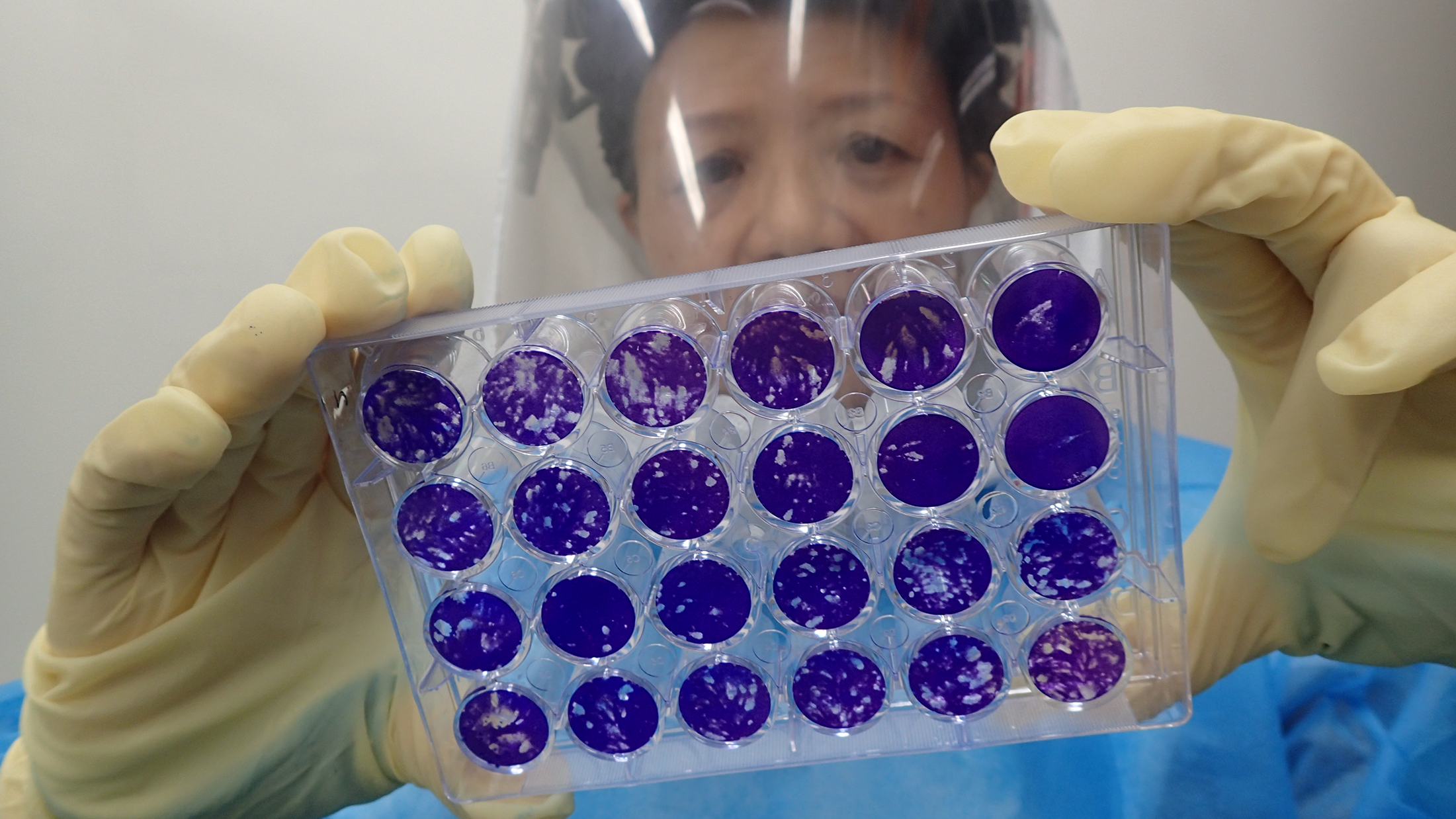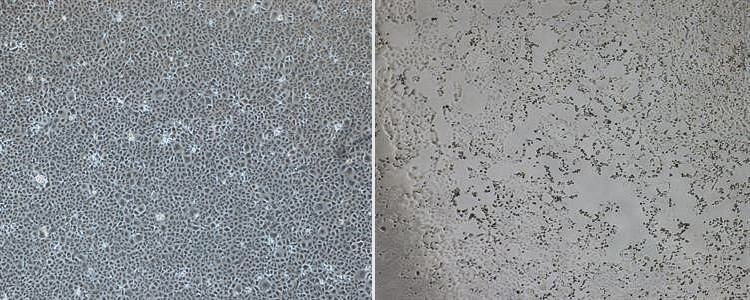Just one week after Singapore detected its first case of SARS-CoV-2 on its shores, scientists at Duke-NUS made a breakthrough. A team of specialised virus hunters cultured the coronavirus from the sample of an infected patient.
This milestone came through collaborations with clinicians and scientists from the National Centre for Infectious Diseases, Singapore General Hospital and the Ministry of Health.
The Duke-NUS culture of this highly infectious virus would go on to underpin many medical interventions against it — from diagnostics to treatments — and contribute to monitoring and surveillance studies.

A GROUP OF SCIENTISTS WORKING IN THE BIOSAFETY LEVEL 3 LABORATORY AT DUKE-NUS WAS ONE OF THE FIRST THREE GROUPS TO CULTURE THE VIRUS
“This is a crucial step forward for Singapore and neighbouring countries in response to the evolving coronavirus outbreak,” said Professor Wang Linfa, Director of the Duke-NUS Emerging Infectious Diseases Programme at the time.
“We will continue our efforts and do our best to serve the nation, the region and the world in controlling this outbreak.”

HEALTHY MONKEY KIDNEY CELLS (LEFT) DIED AFTER INFECTION WITH THE NOVEL CORONAVIRUS (RIGHT)
“This significant breakthrough exemplifies the strong collaborative culture we have with SingHealth, our Academic Medicine partner, as well as the National Centre for Infectious Diseases and the Ministry of Health,” commented Professor Patrick Casey, Senior Vice-Dean for Research at Duke-NUS.
“It will continue to be important in providing insights on potential diagnostics and therapies for this coronavirus outbreak.”
By this time, China had already reported more than 9,000 confirmed infections and 213 deaths.
In Singapore, 13 cases had been confirmed by 2pm that day while results for a further 49 cases remained pending.